Question And Answer
Publications
Articles, publications, books, tools and multimedia features from the U.S. Institute of Peace provide the latest news, analysis, research findings, practitioner guides and reports, all related to the conflict zones and issues that are at the center of the Institute’s work to prevent and reduce violent conflict.
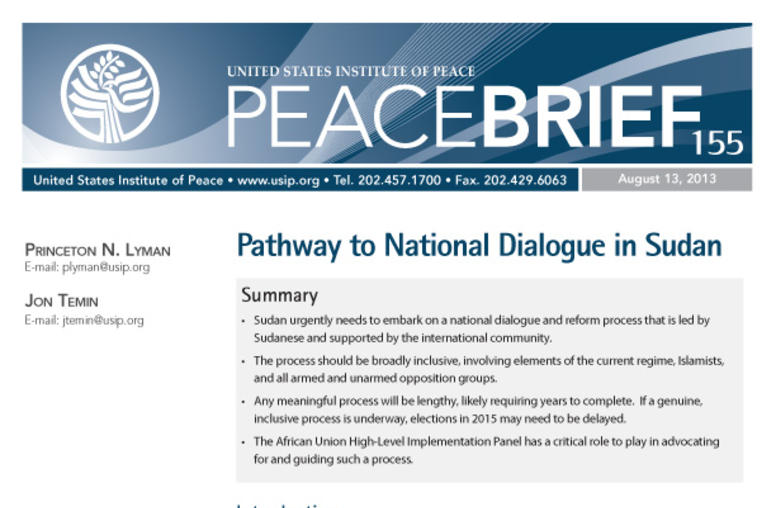
Pathway to National Dialogue in Sudan
Sudan urgently needs to embark on a national dialogue and reform process that is led by Sudanese and supported by the international community. Without such a process, Sudan has little chance of breaking its destructive cycle of instability. Authors Ambassador Princeton N. Lyman, a special advisor to the president of USIP and former special envoy for Sudan and South Sudan, and Jon Temin, director of USIP’s Horn of African program, examine the way forward.
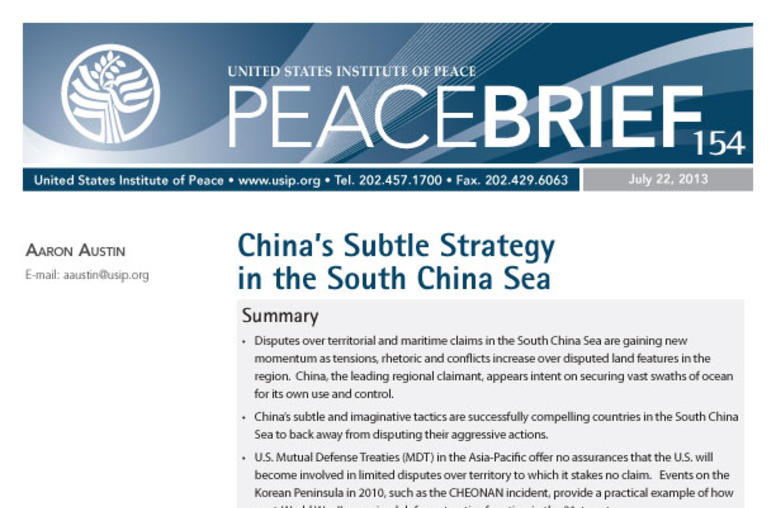
China’s Subtle Strategy in the South China Sea
In a new Peace Brief, Lieutenant Commander Aaron Austin outlines China’s subtle tactics to expand its influence in the South China Sea and examines why they are so difficult to challenge.
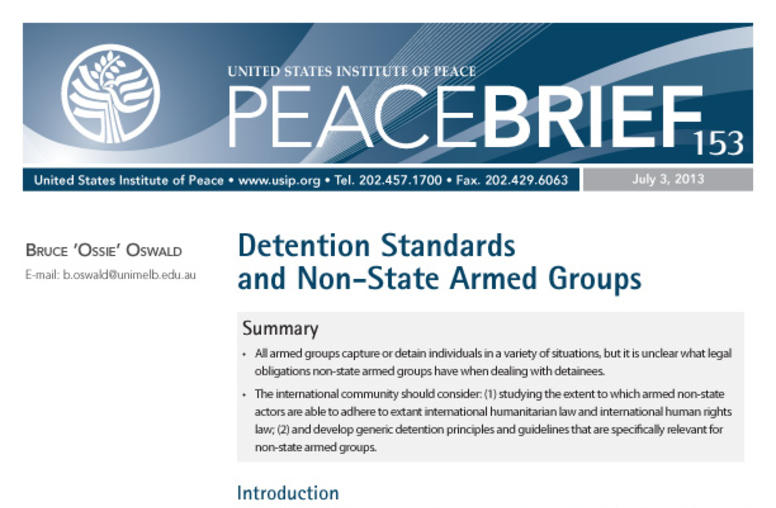
Detention Standards and Non-State Armed Groups
All armed groups capture or detain individuals in a variety of situations, but it is unclear what legal obligations, if any, non-state groups have when dealing with detainees. Bruce Oswald explores this question and the challenge of getting non-state groups to respect basic detention standards.
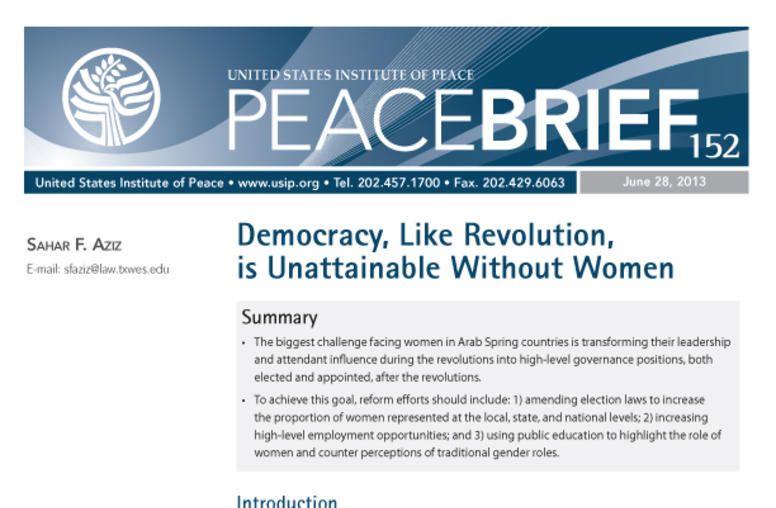
Democracy, Like Revolution, is Unattainable Without Women
In this peace brief, author Sahar F. Aziz argues that the biggest challenge for women in Arab Spring countries is transforming their leadership and influence into high-level governance positions, both elected and appointed.
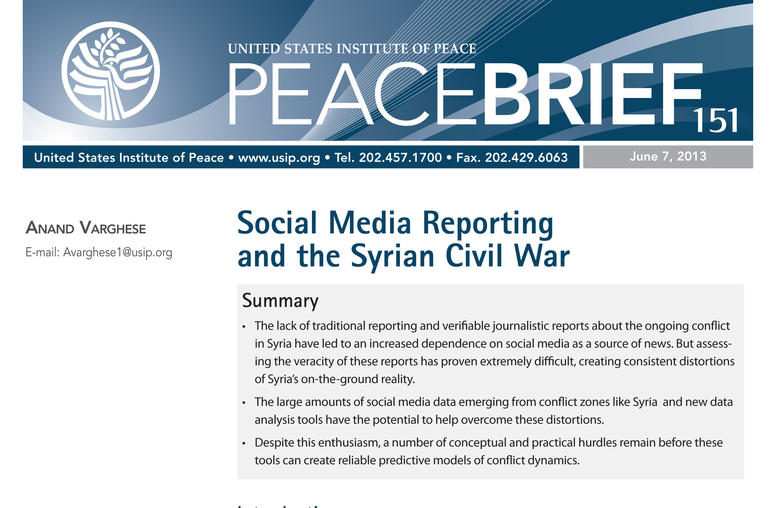
Social Media Reporting and the Syrian Civil War
The “fog of war” that once obscured our view of conflict zones is quickly giving way to rich information environments due to vast amounts of social media data emerging from these places. But in places like Syria, where traditional news journalists have had little or no access, we have become increasingly dependent on these sources. USIP's Anand Varghese examines the implications of this trend for the field of peacebuilding.
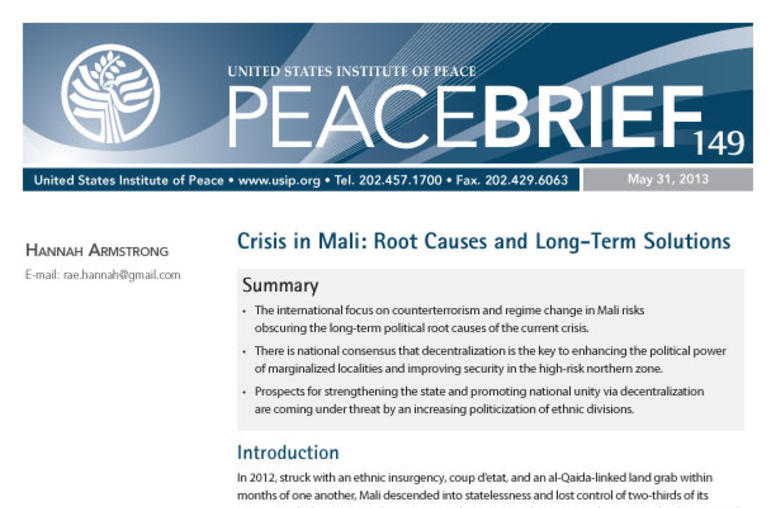
Crisis in Mali: Root Causes and Long-Term Solutions
The international focus on counterterrorism in Mali risks obscuring the root causes of the North African country's crisis, writes Hannah Armstrong in this Peace Brief. In short, she argues, power and resources must be transferred from the centralized state to outlying territories in order to promote long-term stability.
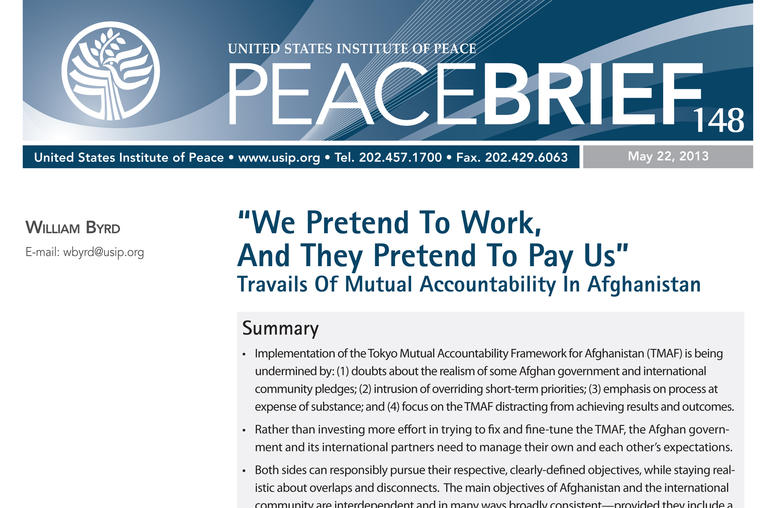
"We Pretend To Work, And They Pretend To Pay Us"
USIP’s Bill Byrd examines the challenges to the Tokyo Mutual Accountability Framework for Afghanistan, and what could be done to make its implementation more effective.
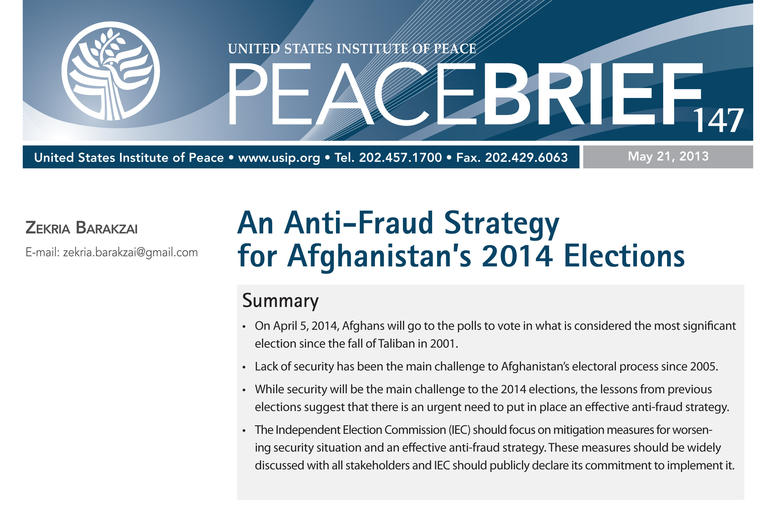
An Anti-Fraud Strategy for Afghanistan’s 2014 Elections
In April 2014, voters in Afghanistan will go to the polls for the most important elections since the fall of the Taliban in 2001. Given that international security forces are scheduled to leave the country by the end of 2014, a legitimate election is essential for the country’s stability. Afghan electoral official Zekria Barakzai outlines steps Afghanistan can take now to prevent electoral fraud in 2014.
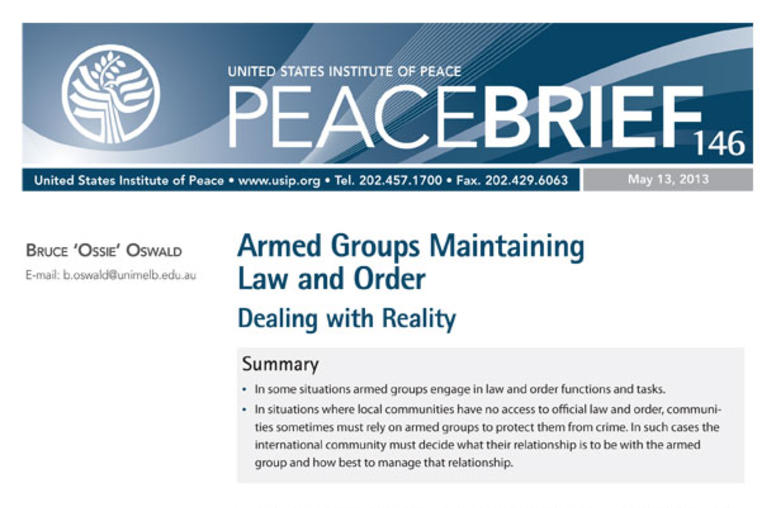
Armed Groups Maintaining Law and Order
What should the relationship between governments and the international community be with armed groups, and how might that connection be managed responsibly? USIP Senior Fellow Bruce Oswald explores the matter and the challenges involved.
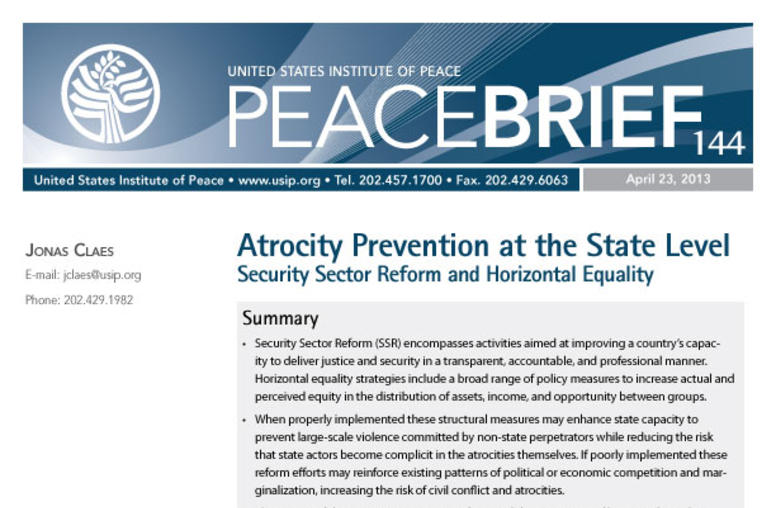
Atrocity Prevention at the State Level
In “Atrocity Prevention at the State Level,” Jonas Claes examines how states can mitigate the internal risk of atrocities through security sector reform and improved horizontal equality.